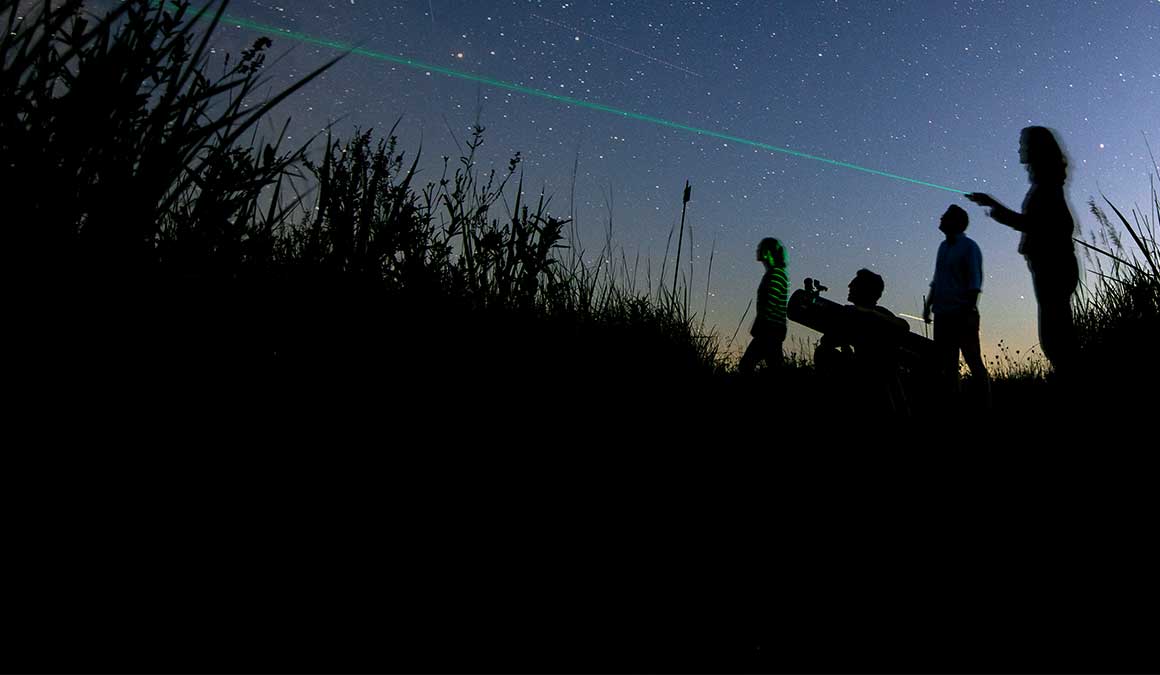Charlotte Christensen
Student research takes a path that goes to distant galaxies.

“Part of the reason I love working at Grinnell is the opportunity I have to do research with undergraduate students.”
— Charlotte Christensen
When the 2017 Total Solar Eclipse was appearing across the United States, Charlotte Christensen, a Grinnell College assistant professor of physics, and a group of physics students were chasing its path, frenziedly changing their van’s course from one Missouri city to another.
“Having students there to experience the eclipse for the first time made it all the more exciting,” Christensen says.
A deep space expert, Christensen works with Grinnell student researchers to understand how galaxies form and evolve.
“Part of the reason I love working at Grinnell is the opportunity I have to do research with undergraduate students,” she says. “The product of my research is two-fold. It’s exciting to find discoveries, but the other important part is mentoring students to have their own research experiences discovering things for themselves.”
Christensen explains that Grinnell is shifting the traditional way of learning. Instead of students looking up answers in the back of a textbook or asking a professor for the answers, students are learning through self-discovery often times “finding answers entirely new that no one else has seen before.”
In 2019, Christensen received a $484,300 Faculty Early Career Development grant from the National Science Foundation (NSF). The grant is supporting her study of what spurs and halts the growth of dwarf galaxies. This recognition is considered the most prestigious and competitive grant the NSF awards. They are made to junior faculty members who are exemplary scholars and teachers.
For the teaching component of her project, Christensen created a set of computational exercises, labs, and open-ended research projects for students that were integrated into the physics curriculum.
An additional benefit of the grant is it supported summer research projects for a dozen Grinnell students, including opportunities to present at national conferences and to visit collaborators at research institutions.
Mentoring students and taking them into the field and has led to students having work published in scientific literature. They go from being a consumer of information to a producer of new information and discoveries.
Furthermore, Christensen sees students grow to a level of independence, moving into a place of ownership over their own development.
“Having developed that level of independence leads to curious scientists, driven to make a difference,” she says.
Mentored research is essential to the learning experience at Grinnell. It can lead students to a place where there is no net below them; they are out on the edge. For Christensen, this kind of mentorship translates to the difference between a follower and a leader.
“They go from a perspective of where they rely on others for answers to becoming the person who others look to for the answers – and not just their peers, but other scientists as well,” she says.